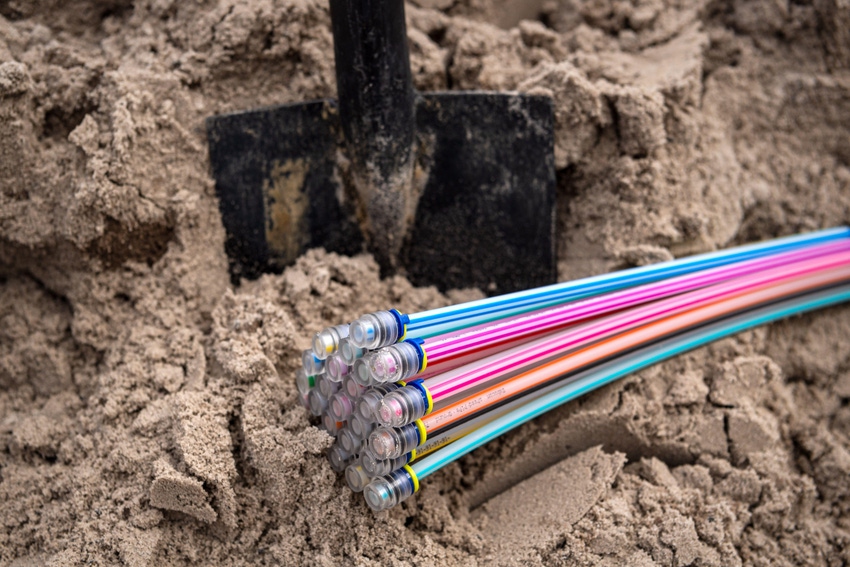The Buildout: Oregon gets $156M for broadband, Spectrum details CAB awards
This week in broadband builds: Spectrum announces CAB grants in North Carolina, construction in Georgia; Oregon gets $156 million to connect over 17,000; WOW enters Minnesota and more.

The Buildout is a column from Light Reading tracking broadband network deployments. This week we're tracking grants, construction and service launches reaching roughly 245,000 locations across the US. Send us your news right here. Keep up with every installment of The Buildout here.
Spectrum/Charter Communications announced three of the awards it received through North Carolina's Completing Access to Broadband (CAB) program. The company, which won seven CAB awards in a round announced earlier this month, said it received $4 million to bring broadband access to nearly 1,300 homes and businesses in Robeson County; plus $1.25 million to reach more than 300 homes and businesses in Haywood County; and $630,000 to reach 175 homes and businesses in Franklin County. Combined with investment from Spectrum, each project cost is $6.2 million, $1.8 million and $740,500, respectively. Separately this week, Spectrum announced it is starting construction on projects in the Georgia counties of Oglethorpe, Madison and Banks. The company received grant funding from Georgia's Capital Projects Fund Grant Program of roughly $33.8 million for the three counties in January of this year – and will invest an additional $42 million – to reach nearly 11,000 unserved homes and small businesses in the region.
The US Treasury Department approved $156.7 million through the American Rescue Plan's capital projects fund for broadband projects in Oregon. The funding will help connect an estimated 17,195 homes and businesses, according to a press release. Oregon will distribute the grant funding through the state's Broadband Deployment Program (BDP) and will prioritize delivering service to locations "currently lacking service that reliably meets 10/1 Mbps." Oregon is also set to receive $688.9 million to reach unserved and underserved areas through the federal government's Broadband Equity Access and Deployment (BEAD) program.
WideOpenWest (WOW) announced that it will begin construction in the Minnesota counties of Anoka and Ramsey "over the coming months," marking the company's entrance into that state. According to a press release, WOW intends to connect 85,000 new homes in Minnesota. WOW's Minnesota announcement follows recent news that the company is expanding in Michigan. Both builds are part of the company's greenfield initiative, through which it is working to reach 400,000 new homes with fiber by 2027.
Vermont's Community Broadband Board announced that in recent months it has awarded $58.9 million in grants for broadband projects to Vermont's Communications Union Districts (CUDs) . The grants will expand broadband in five CUDs and connect roughly 13,000 currently underserved homes and businesses. Grants approved this month include $13.59 million for Lamoille FiberNet, in partnership with Consolidated's Fidium Fiber; and $9.95 million for Otter Creek, also in partnership with Fidium Fiber.
TDS is launching services for its first customers in Menomonie, Wisconsin, where the company started construction earlier this year. Once complete, the network is expected to connect roughly 5,000 addresses in the Menomonie region. In a press release, TDS said it is launching services "neighborhood by neighborhood as sections of the project are finished."
Kinetic/Windstream this week announced a $6.8 million public-private partnership with Bullitt County, Kentucky, that will see the company build out fiber to roughly 6,300 homes and businesses. In a press release, the company said it expects to begin construction in early October. Kinetic will invest $4.8 million and cover cost overruns, and Bullitt County will contribute $2 million. Work is expected to be finished next year, said Kinetic.
In Missouri, i3 Broadband confirmed that it is continuing to expand its fiber network in the St. Charles County region and has turned services on for "479 more homes in the St. Peters area." Services went live in mid-September, said the company. The build is part of a $100 million investment, announced by i3 in 2021, to serve the cities of St. Charles, St. Peters, O'Fallon, Wentzville, Lake Saint Louis, Dardenne Prairie, Cottleville and Weldon Spring, Missouri.
Tachus Fiber announced plans to invest $100 million to reach 100,000 locations in Southwest Houston with fiber broadband. In a press release, the company said it will deploy its XGS-PON network over the next two years to connect homes and businesses with multi-gig speeds. Construction is expected to begin in Q4 2023, with initial services set to launch by the end of the year. Tachus Fiber, an ISP based in The Woodlands, Texas, has financial support from Crosstimbers Capital Group, a private equity fund manager headquartered in Houston.
Ritter Communications said it is "reaching completion" on a buildout in Centerton, Arkansas. In a press release, Ritter said it is investing $3.5 million to bring its RightFiber services to "numerous Centerton neighborhoods," with symmetrical speeds up to 5 Gbit/s. The company announced the launch of 2 Gbit/s and 5 Gbit/s services across its RightFiber network this past May.
Metronet said it has launched initial services in Havelock, North Carolina. Metronet, which is building out fiber networks with financial backing from Oak Hill Capital, started construction in Havelock in January 2022. According to census data, Havelock has roughly 5,224 households.
Empire Access, which was acquired by private equity firm Antin Infrastructure Partners this year, broke ground on its network expansion in Scranton, Pennsylvania. In a press release, the company said it will build out 86 miles of fiber by the end of 2023, and an additional 90 miles of fiber by the end of 2024.
Read more about:
The BuildoutAbout the Author(s)
You May Also Like












